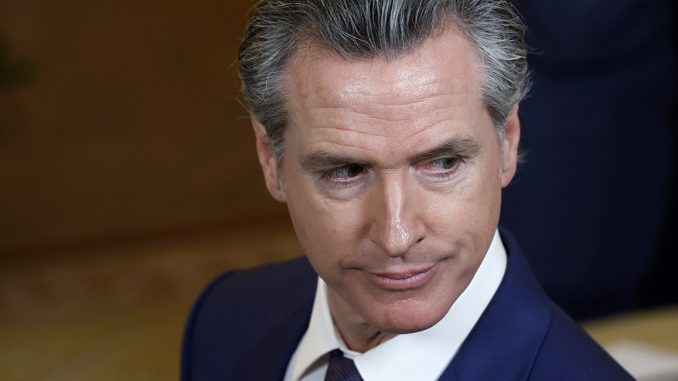
Advocates of command economies argue that government regulation of wages, prices, and production will lead to a more equitable allocation of income and wealth.
But that’s hardly the case under California’s new fast-food command economy. An unusual exemption from California’s new $20 minimum wage requirement for fast food workers appears aimed at propping up at least one billionaire friend and donor of Gov. Gavin Newsom at the expense of the wages of bread bakers.
In September 2023, California created a Fast Food Council within the Department of Industrial Relations and tasked it with developing minimum standards for fast-food employment related to training, working conditions, health and safety, and wages.
The same law that created the council—Assembly Bill 1228—set a $20 per hour minimum wage for fast-food restaurant workers, beginning April 1, 2024. That’s $4 higher than California’s statewide $16 minimum wage.
That minimum wage hike and all other regulations that the Fast Food Council imposes apply to all fast-food and limited-service restaurants that have at least 60 establishments nationwide.
But there’s one unusual exception:
“Fast food restaurant” shall not include an establishment that on September 15, 2023, operates a bakery that produces for sale on the establishment’s premises bread … only where the establishment produces for sale bread as a stand-alone menu item, and does not apply if the bread is available for sale solely as part of another menu item.
In plain English, this means that restaurants that were already in the practice, as of Sept. 15, 2023, of baking their own bread where customers could buy that bread by itself as a stand-alone product are exempted from the higher minimum wage, while other restaurants that also baked their own bread but used it in their sandwiches and other menu items and didn’t sell by itself are not exempted. This seems like a very specific and narrowly tailored part of the law.
This exception most notably applies to Panera Bread franchises, including those owned by billionaire CEO Greg Flynn of the Flynn Restaurant Group that owns two dozen Panera Bread locations in California.
Flynn reportedly attended the same high school as Newsom, has been involved in business deals with Newsom, and has donated at least $164,800 to Newsom’s campaigns.
Newsom told reporters in January that the exemption was “part of the sausage-making” of writing laws.
Now, while most national restaurant chains in the state will have to cope with a 25% wage hike, Panera Bread owners will be exempt from this and any other commands that the Fast Food Council rains down.
From the perspective of command economy advocates who believe that government can effectively redistribute resources with little or no unintended consequences, this exemption equals a redistribution from bread bakers’ wages to a billionaire’s profits.
In reality, there are greater economic forces at play.
Bread bakers (and others working in bread-baking restaurants) could actually see benefits of the exemption through fewer lost jobs and lost benefits than they would see at restaurants that don’t get the exemption. For example, Pizza Hut, which does not have an exemption because its bread is not sold as a stand-alone product, already laid off 1,200 workers in the state. Other companies are undoubtedly turning to automation to replace some workers.
The benefits of the exemption could also mean fewer price increases for customers. Chipotle and McDonalds announced they will raise menu prices in California to pay for the wage hike.
Whereas command economy mandates and crony exemptions allow politicians to pull the levers of production and wages, such manipulation results in a smaller and unlevel playing field.
In a market economy, workers set the rate at which they are willing to provide their labor, employers set the rate they are willing to pay for labor, and if the employer’s rate is the same or higher than the worker’s, they enter into a mutually beneficial agreement.
History demonstrates that people engaged in free exchange of their labor and resources produces greater widespread prosperity than political elites engaged in sausage-making. That’s why the centrally planned economies of Eastern Europe produced significantly lower family incomes and less freedom during the Cold War than predominantly market economies. It is also why they eventually collapsed.
California’s crony command economy may be currently limited in scope to the fast-food sector, but this is presumably not the end of the Golden State’s heedless attempts to supposedly help workers.
If politicians in California actually want to improve the wages of all workers—not just those at fast-food restaurants that didn’t serve fresh-baked bread as a stand-alone menu item on Sept. 15, 2023—they should focus on the only lasting way for people to earn higher wages, which is by them becoming more productive.
To that end, California and other states could eliminate unnecessary licensing laws that prevent people from using skills they already have—like braiding hair, arranging flowers, or bartending—to earn a living. Policymakers should also expand educational opportunities by breaking down unnecessary regulations on apprenticeships. And reducing taxes and regulations on businesses would free up resources for employers—who report that labor quality and costs are their greatest struggles—to invest in their workers rather than government revenues and compliance.
Have an opinion about this article? To sound off, please email letters@DailySignal.com, and we’ll consider publishing your edited remarks in our regular “We Hear You” feature. Remember to include the URL or headline of the article plus your name and town and/or state.

